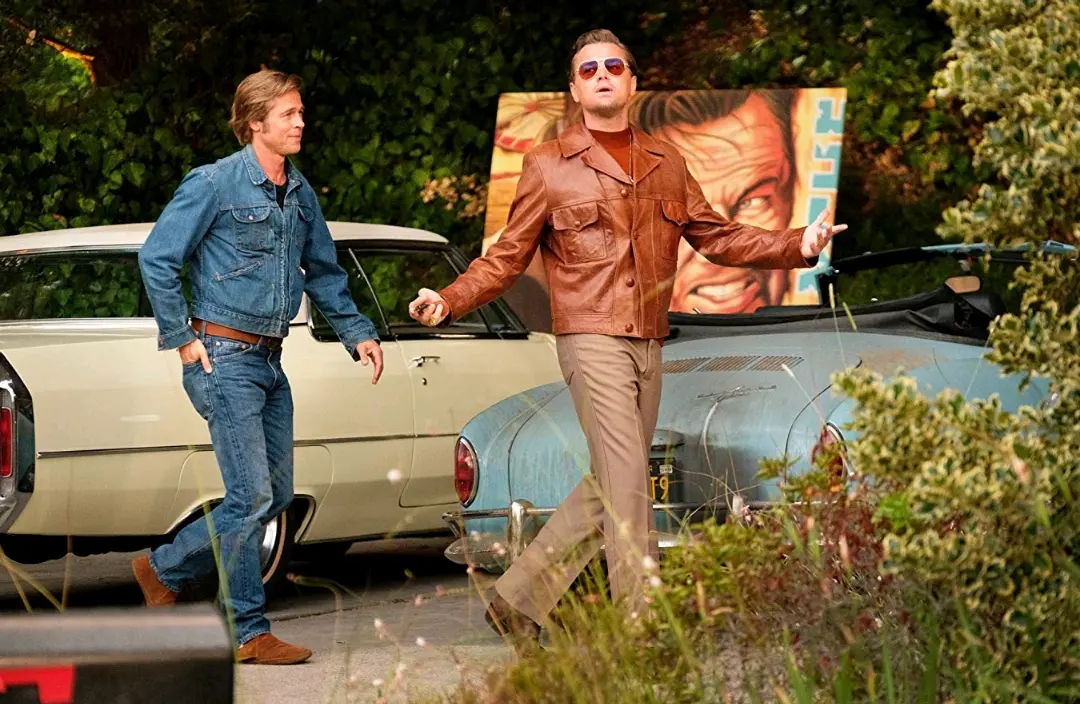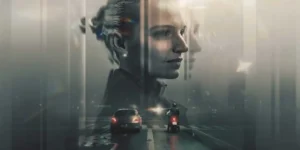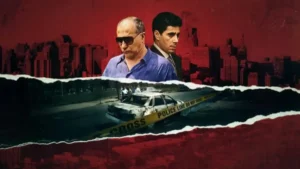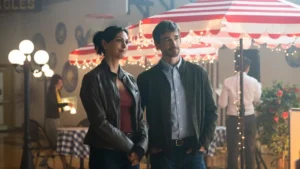Summary
Once Upon A Time in Hollywood, Tarantino’s period piece about the first few years after the end of the Golden Age of Hollywood, is his most mature work, even grounded, and beautifully shot.
Let’s get one thing straight. There is nothing like a Quentin Tarantino film. Nothing. There are few film experiences during which you can instantly know you are watching the former video store clerk’s unique blend of style and dialogue. Yet, each of his nine films has been singularly different from one another. That being said, there will be a certain group of film fans, even Tarantino diehards, that may be disappointed with his latest film, Once Upon a Time... In Hollywood. If you are one of those, who are frustrated with the length of the movie before it gets to where it needs to be or his penchant not only to write a revisionist history but to go ahead and reinvent it, ask yourself this: What did you exactly want to see? If you are thinking what I know you are telling yourself, take to heart the legendary director’s underlining commentary on the audience’s insatiable appetite and craving for the macabre, which seems to be the point entirely.
Once Upon a Time… After the end of the Golden Age of Hollywood, Hollywood took place, which lasted from 1917 to the early 1960s. The audience changed; silent films or grand epics like Gone with the Wind or Wizard of Oz were long gone. They were replaced with the emergence of free airwaves given to the public to watch entertainment from their houses. This isn’t a film about the last years of the Golden Age, as many are saying, it’s about the years after and what movies become. In those transitional years, the characters are television star Rick Dulton (Leonardo DiCaprio) and Cliff Booth (Brad Pitt, easily one of his best roles), who pulls double-duty as Rick’s stuntman and best friend.
Cliff is out of consistent work. Rick is taking guest spots after his hit ‘50s television show, Bounty Law (think the ‘80s hit show, Hunter, starring Fred Dryer, where every suspect gets a piece of hot lead at the titular character’s hand). He is offered to star in a series of Spaghetti Western Pictures that has him all sorts of upset, sensing the end of his professional life is near. Meanwhile, Sharon Tate (Margot Robbie) has taken the town by storm, has found herself living with Roman Polanski (Mindhunter’s Damon Herriman) and hanging with actor Jay Sebring (an Emile Hirsch sighting). This all leads up to that summer night on Cielo Drive in 1969.

Tarantino wrote the script, and naturally, assumptions were made. Here is a man that likes solid female characters but ultimately can use women for sensationalism and has been accused (rightfully so) of spewing the N-word as a way to be edgier than the rest. Would he exploit the “Manson Family Murders”? As a way to show a beautiful blonde actress be bloodied across the widescreen for entertainment purposes?
Not so fast; maybe it is the fact that Tarantino has gotten married or wants to start a family, or more likely in the wake of the #MeToo movement, he has had a come to Jesus moment. His revisionist film taps out at a whopping 161 minutes and wouldn’t have worked if it played out exactly how we would have come to expect, no matter how benign or significant the changes that may or may not have been made. This is nothing new for him, with his Inglorious Basterds being a prime example.
So why all the hype and the fluff in the middle to get to the end? Sure, it takes about two hours to get there, floating in the film fluffer-nutter that is his love letter to Hollywood; but what an entertaining amount of fluff it is. His script will use words as action pieces; as film fans know, Tarantino always writes how people talk. Something is exhilarating watching DiCaprio’s Dalton stutter his lines as an homage to Steve McQueen, the way the banter between Pitt’s Booth and his very young admirer from Charlie’s extended family, Pussycat (a terrific Margaret Qualley) banter back and forth in an old Coup Deville along a sun-drenched highway. Despite the quibble I have with the strangely spotty, off-again, the on-again narration of Kurt Russell, the script is surprising, practically flawless, and gleefully entertaining.
The film only seems long to some, as many are waiting for the big ending that, in real life, turned a nation’s head. A few are missing this film is a period piece, a time where Hollywood turned the page forever, and an incident that changed filmmaking. After watching Once Upon a Time… In Hollywood, the whole movie works singularly and couldn’t have worked any other way. It’s a highly entertaining film, containing one of Brad Pitt’s best performances and an almost perverse ode to a director’s love of movies. I wouldn’t put his ninth film up with the likes of Pulp Fiction, Inglorious Basterds, or Reservoir Dogs. However, this chapter is his most mature, even grounded, and most beautifully shot piece of filmmaking to date.



